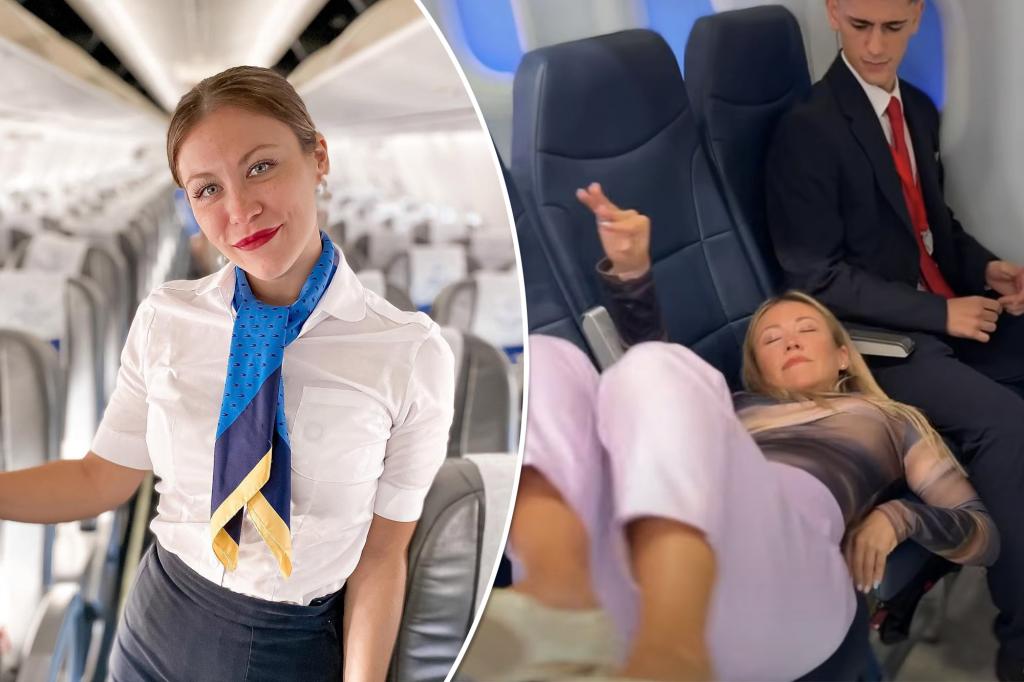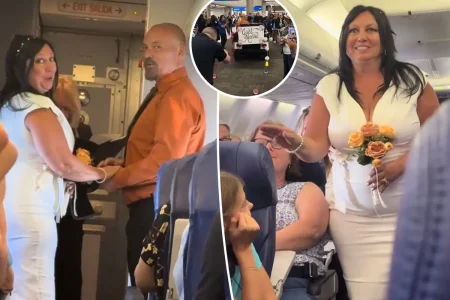Fly Right: A Flight Attendant’s Guide to Better Air Travel
In the age of mass air travel, where millions traverse the skies daily, Argentine flight attendant Barbara “Barbie Bac” Bacilieri has emerged as an unexpected voice of aviation wisdom. With 2.7 million YouTube subscribers hanging on her every word, this 29-year-old sky professional has transformed her years of in-flight experience into practical advice for passengers. Beyond the glossy brochures and airline promotional videos lies a reality that Bacilieri isn’t afraid to share – air travel comes with unspoken rules that can make your journey safer, more comfortable, and less likely to annoy the people responsible for your wellbeing at 30,000 feet. Her candid insights offer a rare glimpse into the cabin crew perspective, revealing that what passengers might consider harmless behavior can sometimes create genuine challenges for flight staff managing complex operations in a confined space.
The most immediate of Bacilieri’s recommendations focuses on passenger interactions with crew members, particularly around ill-timed humor. “When the ‘Society of the Snow’ movie came out, a passenger told me, ‘If anything happens, I give you my consent to eat me,'” she recalls with evident discomfort. Other passengers have made equally inappropriate comments like, “Who’s flying? If it’s a woman, let me know, I’m getting off.” These attempts at levity might seem harmless to those making them, but they can be genuinely distressing for crew members who take their safety responsibilities seriously. Flight attendants are trained professionals managing everything from medical emergencies to security threats, all while providing service in a pressurized tube hurling through the atmosphere. The added burden of responding to awkward jokes about plane crashes, cannibalism, or sexist remarks about pilots creates unnecessary tension in an environment where clear communication and mutual respect are essential. Bacilieri’s gentle reminder that flight crews deserve professional courtesy isn’t just about politeness – it acknowledges that their focus should remain on passenger safety rather than deflecting uncomfortable attempts at humor.
Bacilieri’s practical advice extends to consumption habits and personal comfort during flights. Her warnings about airplane tap water and yogurt left out “on ice bags” for hours might surprise frequent flyers who’ve never considered the hygiene implications of such common offerings. Equally practical is her stance on footwear: “I never wear heels… in an evacuation, you would have to take them off so you don’t damage the slide, and at the airport you have to walk a lot.” This insight reflects her professional understanding that air travel isn’t just about the flight itself but the entire journey from terminal to destination. Her warning carries special weight coming from someone who has witnessed the reality of airport emergencies and evacuation procedures. The recommendation isn’t about style but preparedness – comfortable, secure footwear means you’re ready for unexpected delays, long terminal walks, and yes, even the rare but serious possibility of emergency evacuations where every second counts and high heels become dangerous liabilities.
The flight attendant’s candor regarding airplane cleanliness might disturb some passengers, but her honesty serves as a practical warning rather than mere complaint. “Do you think the liquid on the bathroom floor is water? You can’t imagine everything that’s in there,” she cautions, punctuating this with the equally concerning observation that “the airplane carpet isn’t very clean either.” Bacilieri extends this reality check to items passengers might assume are pristine: “Even though the blankets are washed before each flight, they’ve been used by so many passengers that you never know what might be in there.” These insights aren’t meant to disgust but to inform passengers about the realities of shared spaces that see hundreds of travelers daily. Commercial aircraft undergo cleaning between flights, but the turnaround times and practical limitations mean this cleaning can’t match hotel standards. Knowing this reality helps passengers make informed choices about their comfort and hygiene – perhaps bringing a personal travel blanket, wearing appropriate footwear in lavatories, or using hand sanitizer more liberally than they might elsewhere.
Boarding strategies represent another area where passenger behavior often diverges from what flight crew consider sensible. Bacilieri questions the common practice of lining up early: “Some passengers start queuing at the gate before the plane has even arrived…Why queue to board if you’re going to have to stand around waiting for so long? I prefer to wait until the end for everyone to get on and then I go quietly.” This perspective challenges the anxiety-driven rush to board that characterizes many flights, where passengers often stand in line for extended periods despite having assigned seats. Her recommendation reflects a more seasoned approach to air travel – one that prioritizes comfort over perceived advantages. Unless you’re concerned about overhead bin space for carry-on luggage, the rush to board often means more time confined in a seat rather than moving freely in the terminal. This insight invites passengers to reconsider habitual behaviors that might not actually enhance their travel experience.
Fellow flight attendant Cher from Dallas reinforces many of Bacilieri’s points while adding fashion advice that prioritizes practicality over style. Her viral TikTok warning against rompers, sandals, and revealing clothing isn’t about imposing a dress code but protecting passengers from uncomfortable or potentially dangerous situations. The one-piece romper, though fashionable, becomes deeply impractical in tiny airplane lavatories. Sandals expose feet to questionably clean floors and potential injury during emergencies, while skimpy clothing leaves passengers vulnerable to the notoriously cold cabin temperatures at cruising altitude. These recommendations, like Bacilieri’s, come from a place of genuine concern rather than judgment. They represent the accumulated wisdom of professionals who have witnessed thousands of passengers facing preventable discomforts because of choices made without understanding the unique environment of air travel. The next time you prepare to fly, consider these insights not as restrictions but as insider knowledge that might just make your journey more comfortable, dignified, and pleasant for everyone involved – yourself included.














